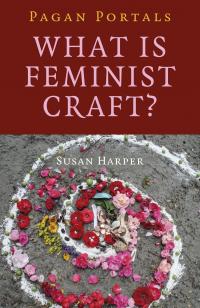

December in the Wheel of the Year Part 3: Kindling the Lights of Yuletide By Lucya Starza
People have always celebrated at this time of year. One of the biggest Roman December festivals was Saturnalia, in honour of Saturn, god of wealth, plenty, liberation and agriculture. Starting on December 17 it was a week of partying, feasting, gift-giving and drinking – a bit like Christmas. People elected a ‘king’ to organise fun, and the Lord of Misrule in medieval courts is thought to originate in Saturnalia. Eventually it became an English household Christmas custom to elect a ‘bean king’ via a bean in a cake. In the 19th century vegetables were replaced by silver charms in puddings.
Winter Solstice
The Winter Solstice is on 21 December this year, although it sometimes falls on the 22nd. This major Wheel of the Year festival is the Northern Hemisphere’s astronomical first day of winter and the shortest day of the year. Melusine Draco in Have a Cool Yule writes:
“Winter Solstice…is the most magical and mystical time of the year and should be celebrated as such with all the pagan gusto we can summon. It is an ancient fire festival that heralds the shortest day of the year; an astronomical turning of the tide to announce the rebirth of the sun and the promise of warmth returning to the land.”
Many of the UK and Ireland’s ancient megalithic monuments align with the Winter Solstice sun, showing its importance. The rising sun shines into the central passage at Newgrange in Ireland. Maes How, on Orkney, lets in the light of the sunset. Stonehenge in southern England has famous solar alignments. Sadly, we don’t know exactly what ancient people got up to at these sites, but many modern pagans gather there still on Solstice Eve and dawn. You don’t have to travel a long way; you can watch the sunrise or sunset near your home, especially at high ground offering a clear view to the east or west respectively. Celebrating locally is what most of our ancestors would have done.
Christmas and Yule
History shows that Christmas in December has decidedly Pagan origins. While Christians celebrate the birth of Christ on 25 December, it wasn’t his birthday. Professor Ronald Hutton in The Stations of the Sun writes: “No modern Biblical scholars would rate the Nativity stories very highly among sources for the life of the historical Jesus.” The date was already a pagan celebration. On that day in AD 274, Emperor Aurelian established the cult of Sol Invictus as an official Roman religion, and it became customary to kindle lights to celebrate the sun’s rebirth. Christmas absorbed this and earlier festivals including Saturnalia. The Venerable Bede in Anglo-Saxon times stated that the most important annual festival of the English had been Modranicht, or Mother Night, on 24 December. It was a kind of new year event. The Scandinavian term ‘Yule’ is mentioned by Snorri Sturlson in the 13th century, associated with Pagan winter festivals.
Now some festive customs:
Wassailing
This comes from the Old English meaning “good health”. Melusine Draco, in Have a Cool Yule, writes:
"The mid-winter tradition of Wassailing... falls into two distinct categories: the house-visiting wassail and the orchard-visiting wassail. The house-visiting wassail is the practice of people going door-to-door, singing and offering a drink from the wassail bowl in exchange for gifts... The orchard-visiting wassail [was]…to promote a good harvest."
Orchard visiting tends to be done in January, but seasonal hospitality was earlier. Friends, family and neighbours would share a wassail bowl any time from Christmas Eve to Twelfth Night. A traditional punch was mulled ale mixed with roasted apple pulp, called lambswool. Steve Roud, in The English Year, writes: “Of all the [Christmas] customs that are believed to be remnants of ancient luck-bringing rituals, wassailing is the only one with any reasonable claim.” Professor Hutton points out the word “wassail” is mentioned in the 8th century tale Beowulf, although the Christmas custom is recorded from the 14th century.
Yule Logs
Large Logs were brought into homes on Christmas Eve, or perhaps Solstice Eve, to burn throughout the long night to guard against baneful things lurking in the darkness. Sir James Frazer in The Golden Bough suggested it had pagan origins relating to vegetation deities and fertility. That’s probably fanciful, but Professor Hutton admits there are “traces of the sort of magical association in which Frazer was primarily interested.” In Montgomeryshire the ashes were put on fields to fertilise them, while in Penistone, Derbyshire, they were put in cellars to keep witches away. The custom waned in the 19th century as fireplaces got smaller. Chocolate logs are their descendants.
 Christmas Candles
Christmas Candles
In 1725, historian Henry Bourne wrote about a possible connection between candles and Yule Logs in Anglo-Saxon times:
“Our Fore-Fathers…were wont to light up Candles of an uncommon Size, which were called Christmas-Candles, and to lay a Log of Wood upon the Fire… It hath, in all probability, been derived from the Saxons.”
However, Steve Roud writes that English Christmas Candle traditions only started in the 19th century. Tradespeople gave customers large candles decorated with evergreens to put in pride of place in the home. Many Yule Log customs became ascribed to Christmas Candles. Lighting a Yuletide candle is still something we can do today. Whatever way you celebrate Yuletide, I wish you the very best for the festive season!
This is part of a series of posts I’m writing for the Moon Books Blog on the theme of the Wheel of the Year. They will be compiled and edited into a book: Pagan Portals – Wheel of the Year. Other books by Lucya Starza in the Pagan Portals series include Candle Magic, Guided Visualisations, Poppets and Magical Dolls, and Scrying. Lucya edited the community book Every Day Magic – A Pagan Book of Days.
Categories:
0 comments on this article






